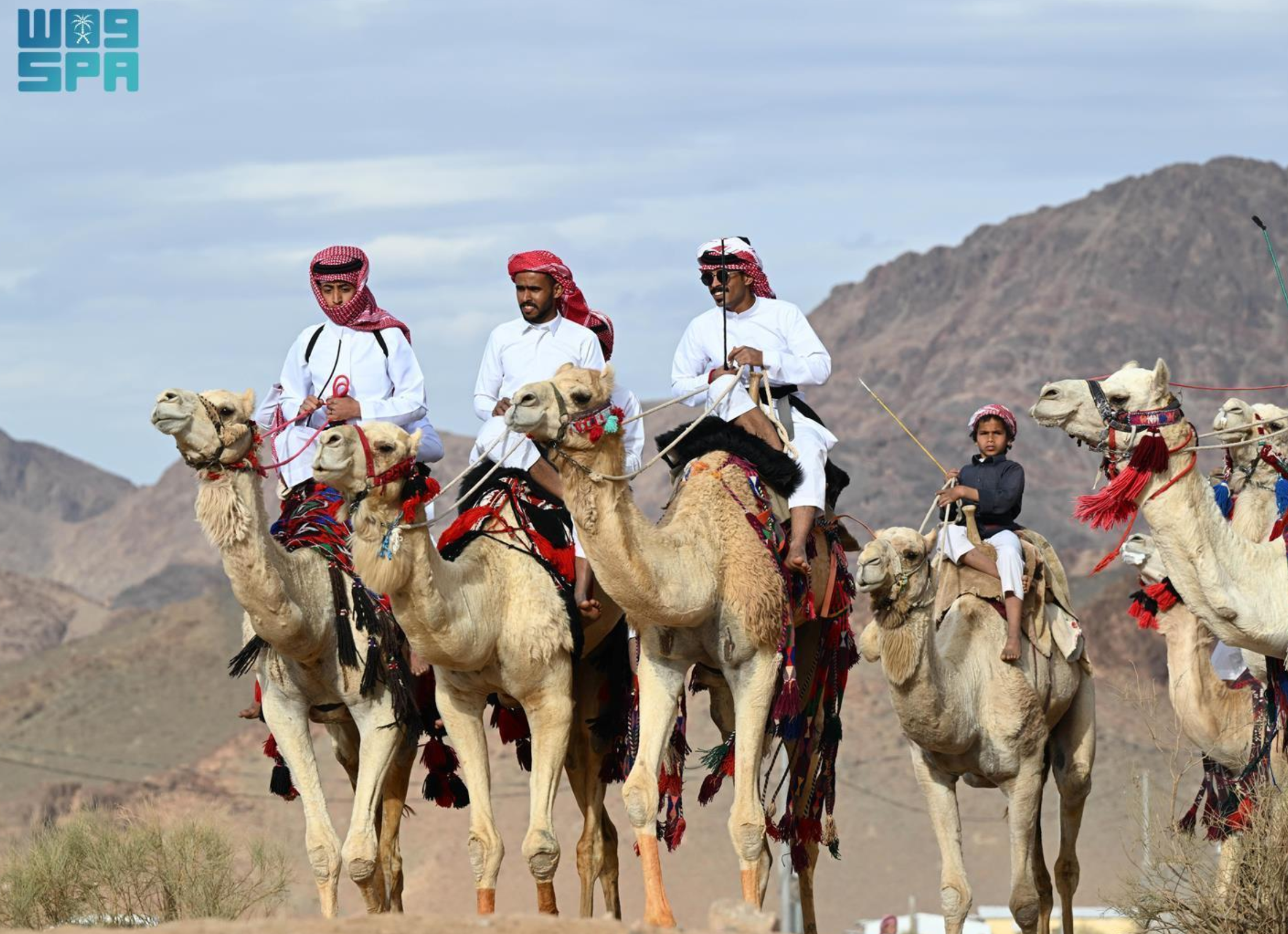
Camel Riders Celebrate Eid Traditions in Tabuk’s Desert to Rhythm of Al-Hijini
In the vast desert of Tabuk, Eid carries a unique spirit, a radiant celebration infused with the scent of the land, the memory of ancestors, and deeply rooted traditions passed down with pride across generations.
Here, where the sands stretch endlessly, camel riders known as hajjanah form majestic processions atop their camels, offering greetings to locals while chanting Al-Hijini, a poetic genre that stirs the heart with melodies of pride, love, and loyalty, preserving the soul of the desert.
The Saudi Press Agency documented the vibrant Eid celebrations among the people of Tabuk's desert, where customs steeped in authenticity and dignity come to life. These traditions reflect a blend of heritage and contemporary life, rooted in the nomadic rhythm of the desert. Camels, adorned for the occasion, play a central role in the festivities as riders set out across the sands, joyfully chanting traditional verses to mark the holiday.
The Al-Hijini poetic form derives its name from the well-trained camels used for riding and racing. Through Al-Hijini, camel riders recite lyrical verses that encompass various themes of life, often focusing on patriotism and romance. The rhythm of the verses aligns with the camels' steady stride, creating a harmonious blend of words and motion.
Noted for its simple melodies and brisk tempo, Al-Hijini naturally accompanies travelers and desert caravans, uplifting spirits and easing solitude. It is deeply tied to Bedouin culture, serving as a medium for expressing emotions, recording daily experiences, relaying wisdom, and preserving ancestral proverbs. While traditionally performed solo, Al-Hijini often transforms into a communal chant during celebrations such as Eid and national occasions, where collective recitation reflects the unity and solidarity of Tabuk’s desert communities.








